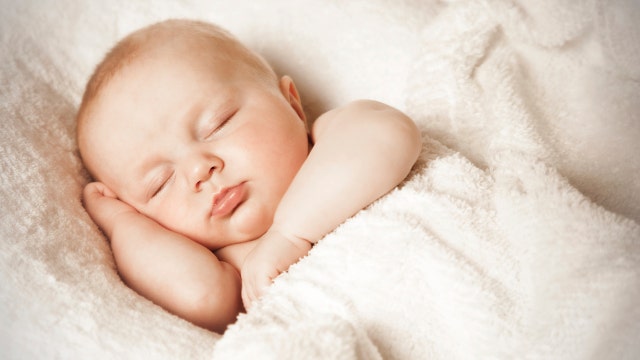How to get your baby to sleep
Pediatrician and sleep expert Dr. Marc Weissbluth offers tips on how to get your children to have a more restful and healthier sleep
All parents know the difficulties involved with getting their children to have a good night’s sleep. But Dr. Marc Weissbluth, a leading physician and author of “Healthy Sleep Habits, Happy Child,” told FoxNews.com that a lack of sleep can have a lasting effect on the health of the child and the entire family.
According to Weissbluth, there is a growing trend of children receiving less and less sleep, which can lead to behavioral, emotional and cognitive deficits.
“Two-year-olds are sleeping about a half hour less than previous generations,” Weissbluth said, later adding that this sleep deprivation can also weigh heavily on the child's mother.
He highlighted three studies by Dr. Harriet Hiscock that found a child's healthy sleep pattern can help prevent depression in mothers.
Keeping in mind the health risks and new parenting challenges that face millennial parents, Weissbluth released the fourth edition of his book which offers advice for parents who want to keep both themselves and their children happy and healthy.
“Fathers are a secret weapon,” Weissbluth said, adding that "fathers can do lullaby's, massage, sing songs, rock the baby. They can do everything a mother can do except breast feed."
Weissbluth also concluded that when fathers are involved in sleep-time rituals, there are fewer problems and the children sleep better.
Another tip is to make sure your children have many naps with intervals of no more than two hours between them. Weissbluth advises parents to put their baby down to sleep when they are drowsy but not fully asleep so they can learn to self-sooth. He warned that if parents keep their baby up too long, they may get a second wind, become overtired and will have trouble sleeping.
He also addressed the growing number of children with televisions in their bedroom, which he said can be a contributing factor to sleep deprivation. Over the past 30 years, the percentage of children with a TV in their bedroom grew from 10 percent to 75. About 20 percent of children under age 2 also have a TV in their bedroom.
"If you really want to stop the sleep problem get the TV out of the kids' bedroom," Weissbluth said.
He also said that parents whose children skip an occasional nap or have a rare troubled night's sleep should not be alarmed.
"We're not perfect," he said. "Your children will be sleep deprived sometimes, but we want to void chronic sleep deficits."








































